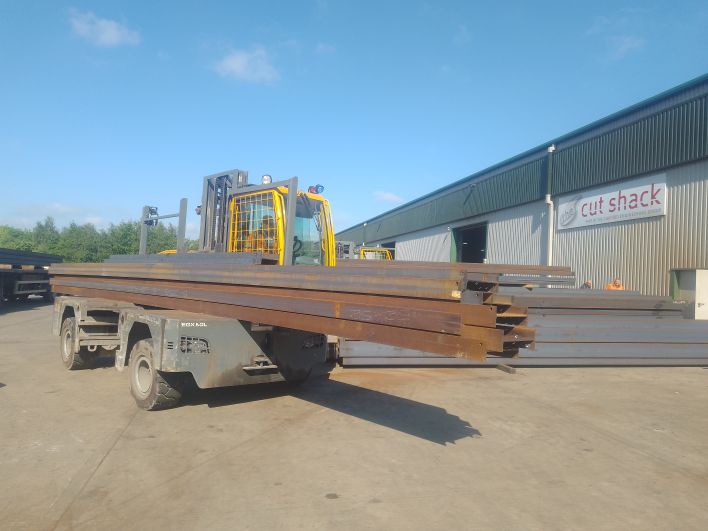Nottingham-based Caunton Engineering, the steelwork contractors, is on track to achieve carbon net zero following the launch of a company-wide sustainability drive.
The family-owned company, which has an annual turnover of around £100 million and employs more than 250 people, is moving forward with its ‘zero-carbon roadmap’ to reduce carbon emissions.
The roadmap is driving a range of carbon reduction initiatives working together with clients, consultants and supply chain partners. These include design optimisation and efficiency, low embodied carbon materials and product innovation, off-site manufacture and assembly and seeking alternatives to liquid fossil fuels for on-site plant and equipment.
As part of this stated commitment towards achieving net zero, Caunton is undertaking a multi-million investment to transform its loading fleet across the company’s fabrication facilities into an all-electric operation.
This includes replacing the gas-powered CombiLift multi-directional forklift with an upgraded electric alternative, and introducing a new fleet of three all-electric Baumann side loaders, providing the latest in 120v battery technology and high levels of performance with wheel times of up to nine hours.
Caunton Engineering’s chairman, Simon Bingham, said: “As one of the UK’s largest steelwork contractors, Caunton has a critical role to play in the transformation of our industry to one that embraces sustainability and is working towards a net zero carbon target.
“Our net zero roadmap provides us with the direction and opportunity to collaborate with clients and use our expertise, knowledge and influence across the full spectrum of our supply chain, which is crucial in addressing climate change.”
He added: “Steel will increasingly be placed under the microscope to examine its green credentials. Our net zero roadmap will provide the right direction for Caunton Engineering to become a market leader in green building solutions.
“With added emphasis on optimised designs, our engineers will move more into partnering arrangements with clients and consultants. We will also need to review structural hybrid solutions, re-use of steel and investment opportunities to reduce our operational carbon footprint.
“Caunton will continue to explore opportunities to reuse structural steel members reclaimed from existing buildings and structures. As a member of the BCSA structural steel reuse working group, we promote steel reuse as a credible option, whilst raising awareness and knowledge throughout the construction industry.”
Post and pre-consumer steel scrap is a valuable raw material used in the steel production process, and is the most recycled material in the world. Around 650 million tonnes of scrap steel is utilised each year within global steel production, with scrap steel used in both primary and secondary steel production routes. This reuse avoids the emissions of over 975 million tonnes of CO2e annually and significantly reduces the use of natural resources.



